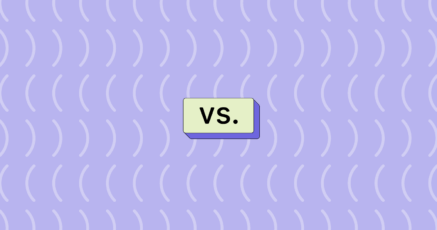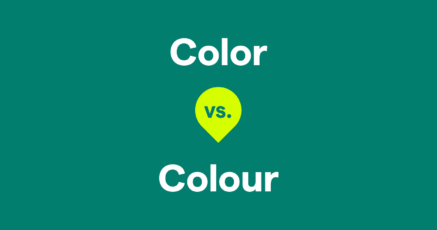Commonly Confused Words - Page 18
 Anymore vs. Any MoreIs anymore one word or two? It depends on how you’re using it. We’re here to set the record straight. Any more and anymore have...August 25, 2016
Anymore vs. Any MoreIs anymore one word or two? It depends on how you’re using it. We’re here to set the record straight. Any more and anymore have...August 25, 2016- Breath vs. Breathe—What’s the Difference?Breathe is a verb we use for the process of inhaling and exhaling. Breath is a noun that refers to a full cycle of breathing. It...August 16, 2016
 “Payed” vs. “Paid”: What’s the Correct Spelling?Most of the time, using the verb pay is not troublesome. It is an irregular verb, but not one that’s hard to memorize, so it’s...August 12, 2016
“Payed” vs. “Paid”: What’s the Correct Spelling?Most of the time, using the verb pay is not troublesome. It is an irregular verb, but not one that’s hard to memorize, so it’s...August 12, 2016 Color vs. Colour—Which Spelling Is Correct?Writers in the US use the spelling color. British and Commonwealth writers use colour. Both spellings are correct depending on...August 11, 2016
Color vs. Colour—Which Spelling Is Correct?Writers in the US use the spelling color. British and Commonwealth writers use colour. Both spellings are correct depending on...August 11, 2016- Kneeled or Knelt?Kneeled and knelt are interchangeable. Knelt is more common in British English than in American English. One ending is enough...August 8, 2016
- Crumby or Crummy?Crummy and crumby are both valid words, but they mean different things. Crumby means “full of crumbs.” Crummy means “lousy.” In...August 7, 2016
- Photo Shoot vs. Photoshoot: Which Is Correct?Photo and shoot are two separate words. If you combine them, should you write them as one word or two? This article will help you...August 6, 2016
- Apologise or Apologize?Apologize is the standard American English spelling. Apologise is the standard British English spelling. Wouldn’t it be...August 5, 2016
 Preventative and Preventive: What’s the Difference?Preventive and preventative are alternative spellings of the same word. They both mean “serving as a prevention or hindrance.”...August 5, 2016
Preventative and Preventive: What’s the Difference?Preventive and preventative are alternative spellings of the same word. They both mean “serving as a prevention or hindrance.”...August 5, 2016 For All Intents and Purposes—How to Use It“For all intents and purposes” means “in effect.” Don’t confuse this expression with the eggcorn “for all intensive purposes.” If...August 4, 2016
For All Intents and Purposes—How to Use It“For all intents and purposes” means “in effect.” Don’t confuse this expression with the eggcorn “for all intensive purposes.” If...August 4, 2016